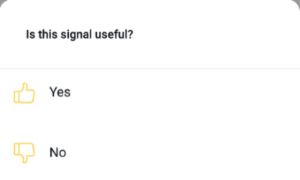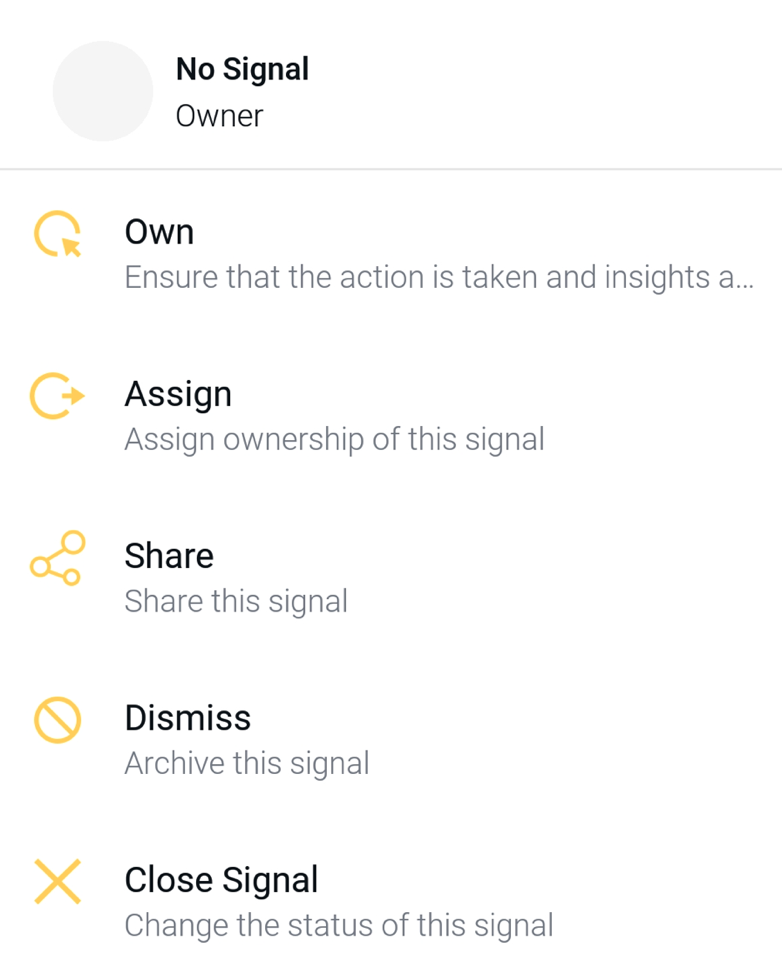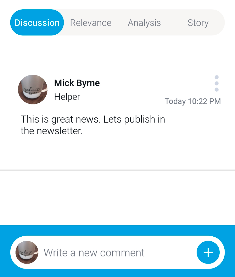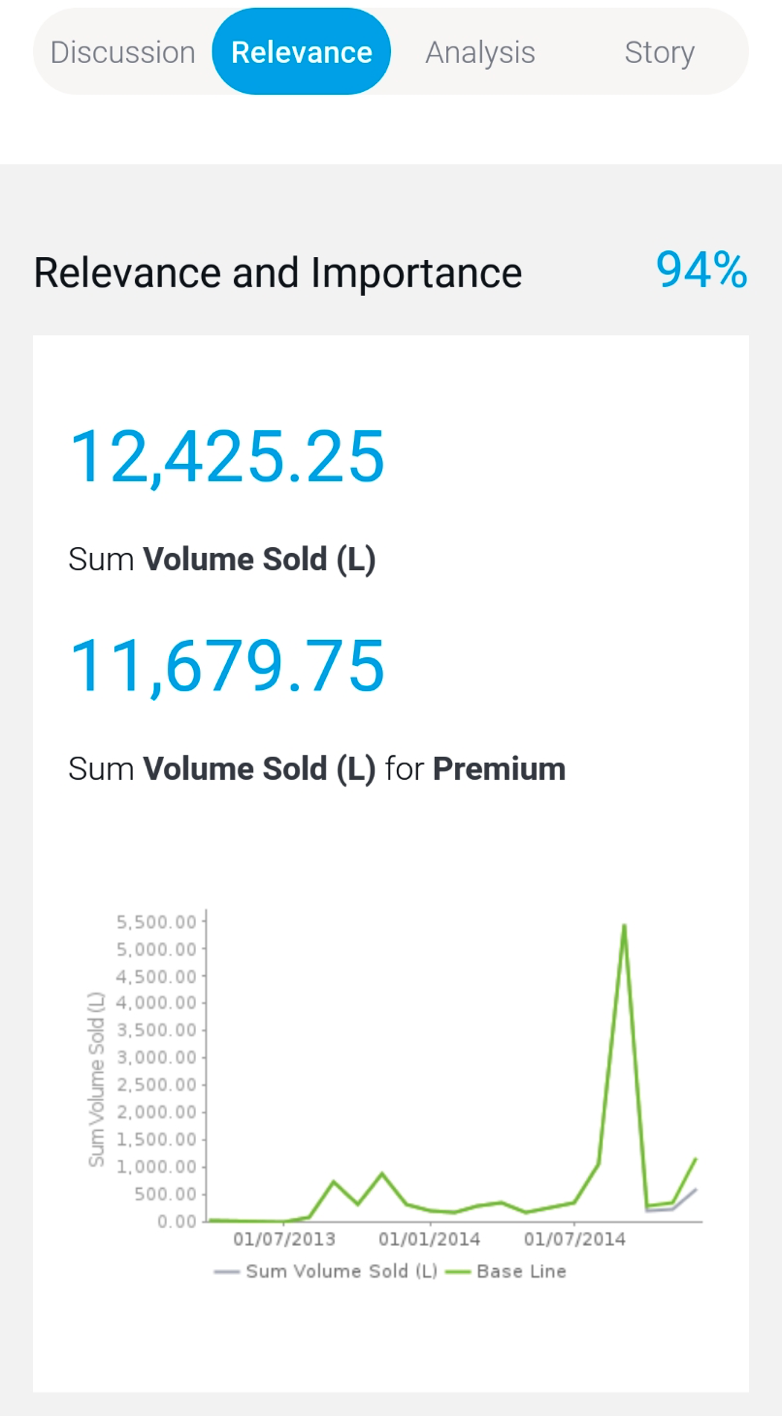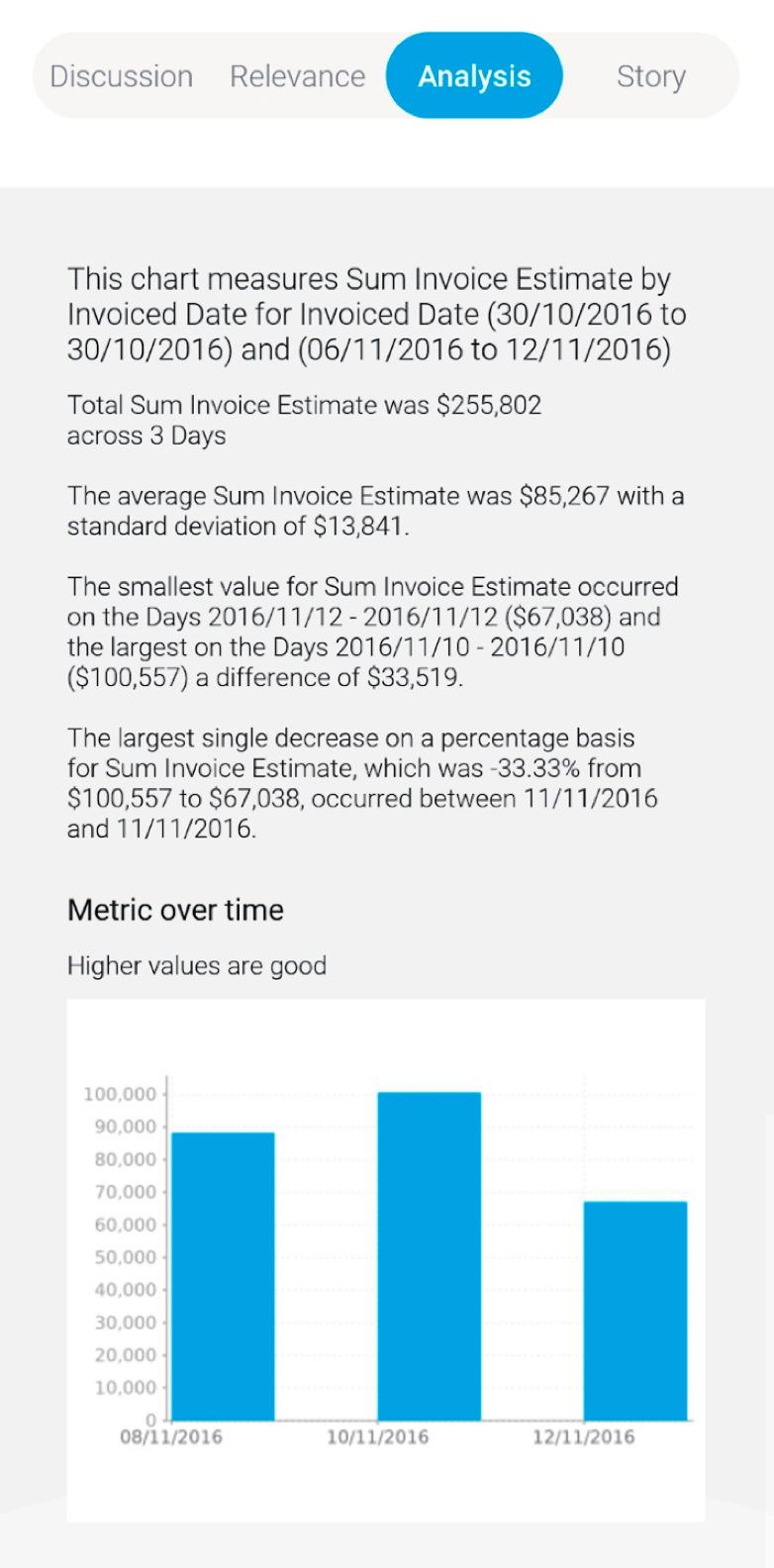Page History
...
Tap on the Signals option in the app menu. A list of Signals will appear.
Tip: If you see a blank Signal screen, reset the filters, as one of the reasons for this could be that filters are set to view the latest Signals, or those from the 'My Signals' list.
Signal tile
The Signal list displays Signals in the form of tiles. You can interact with these in the following manner.
| Section | |||||||||||||||||||
|---|---|---|---|---|---|---|---|---|---|---|---|---|---|---|---|---|---|---|---|
|
...
Use the filters to control which Signals to view in the list. Use one, more or all of the following filtering options.
| Filter type | Description |
|---|---|
| Filter by Signal statusinteraction | This filter lets you view Signals based their current statuson the interaction you have had with them. Options include:
|
| Filter by time | Choose a pre-defined time range to restrict Signals by. For example, you can view Signals that were created within the last 7 days, or the last 90 days. |
| Filter by views | View the Signals generated from all views, or choose a specific view to limit the listed Signals based on that view. |
| Filter by Signal type | Restrict the list to display Signals based on their type. Tip: If you cannot see the Type filter, scroll horizontally where all the filters are displayed. |
...
Below is an example of a Signal detail page. You can perform the following functions and interactions.
| Section | |||||||||||||||||||||||||||||||||||||||||||
|---|---|---|---|---|---|---|---|---|---|---|---|---|---|---|---|---|---|---|---|---|---|---|---|---|---|---|---|---|---|---|---|---|---|---|---|---|---|---|---|---|---|---|---|
|
...
- Tap on the Useful? option on top of the screen.
- The following options will appear on the screen. Tap on Yes to rate this Signal as useful, or No to deem it useless to you.
- Your rating will be saved and taken into account by the system. You can always change the rating by following the same process.
...
Tap on the Actions button to bring up the following menu of actions that you can perform on a Signal. If the Signal has been assigned an owner, you will be able to see their info here as well.
- Own: Assign yourself as this Signal’s owner. Having a Signal owner ensures that there is a person responsible for taking any action on the Signal and sharing insights.
- Assign: Assign ownership of this Signal to another user.
- Share: You can share a Signal with other Yellowfin users, provided the recipients have access to the Signal.
- Dismiss: Dismiss this Signal. This removes the Signal from your list. You can undismiss a signal by filtering Dismissed Signals, and un-dismissing a Signal through its Action menu.
- Close Signal: Close this Signal. This removes the Signal from every user’s list, and makes it inactive, so no other action can be performed on it. However, you can re-open signals by filtering Closed signals and using the Action menu to open a signal.
...
Use the Discussion tab to leave comments and collaborate with other users on this Signal.
| Anchor | ||||
|---|---|---|---|---|
|
...
The chart in the Relevance section here depicts the importance of the Signals data (represented in grey) in relation to all other data that the user has access to (that is, the baseline data or access filters if applied, represented by green).
| Anchor | ||||
|---|---|---|---|---|
|
...
The Analysis tab displays automated analysis through visualizations and natural language narratives, generated by Yellowfin’s Assisted Insights. It is used here to suggest the cause of a signal, and provide underlying reasons for why it occurred.







